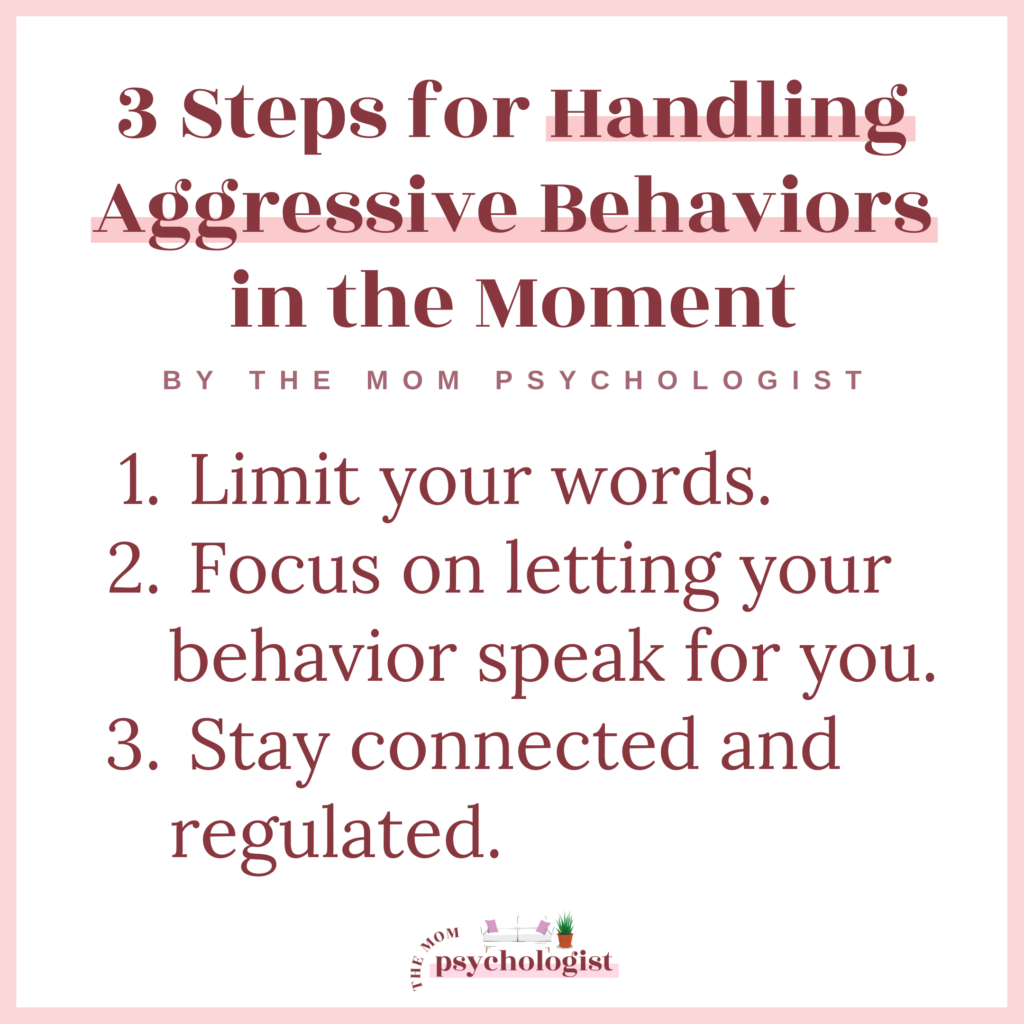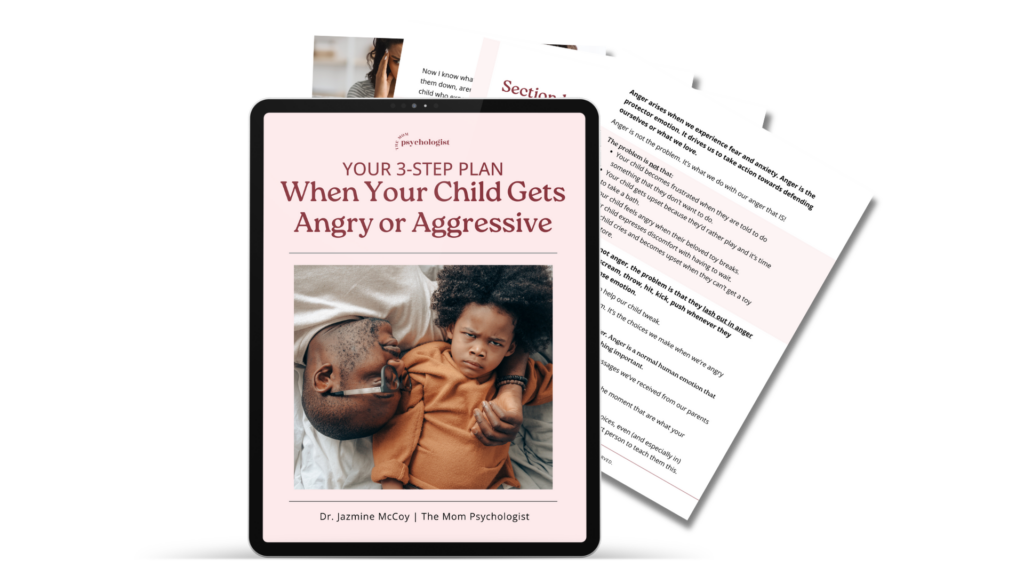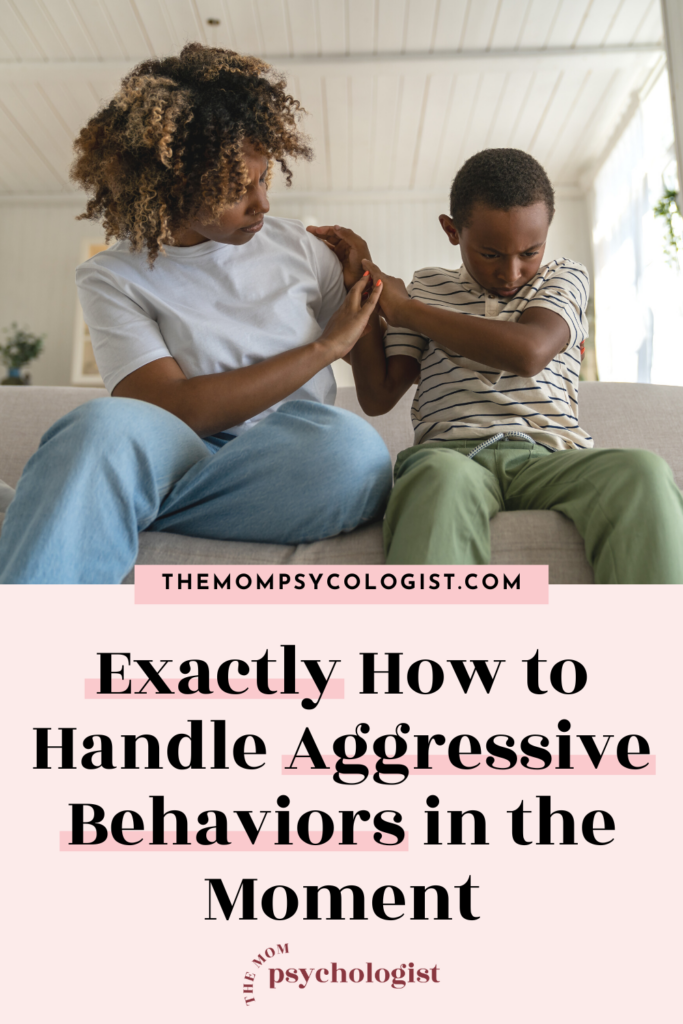watch now!
A place where I discuss all things related to toddlers and motherhood!
Subscribe to my Youtube channel
As a clinical psychologist, published author, and mother to two cheeky young children, I get it. I’ve spent YEARS researching and filtering through the noise online, so you don’t have to.
PARENTING TIPS
POTTY TRAINING
ANTIRACISM
PLAY
Blog Topics
SIBLING RIVALRY
SCREEN TIME
TANTRUMS
DISCIPLINE
Hi I'm Dr. Jazmine
Exactly How to Handle Aggressive Behaviors in the Moment
topics:
Rather listen? Here’s a link to the episode on my podcast!
When it comes to aggressive behaviors, it’s tempting to overcomplicate things by:
- Reacting emotionally: Yelling & getting aggressive back.
- Asking questions (“Why are you doing this??”)
- Trying to reason with them when they’re in an emotional state (e.g., “Well you know we don’t have dessert before dinner.”)
- Lecturing them or telling them to “Stop!”
- Ignoring them and pretending it’s not happening.
But please don’t… Here’s what to try instead.
It’s really simple.
When kids get aggressive (e.g., hitting, kicking, throwing, biting, etc.)…
1. Limit your words
2. Focus on letting your behavior speak for you
(i.e., set boundaries with action not words). This often looks like moving them to another room, removing objects from the environment, moving your body away but staying close by)
3. Stay connected and regulated
Because here’s the thing…

Your main focus when your kid gets dysregulated is to stay calm and help keep everyone safe.
That’s it.
Stay calm & keep everyone safe (as best as you can).
It’s not the time to lecture, try to reason with them, or teach new skills.
Basically, it’s not the time to talk.
This often escalates the situation (depending on your child’s level of dysregulation).
The bulk of what you do when it comes to minimizing aggression is actually done *outside the moment.*
Yes, in the moment it’s important to send a strong message that you don’t tolerate aggressive behaviors & that you’re committed to keeping everyone safe but far too often, we underestimate how important it is to circle back to these concepts when everyone is calm.

Here are a few ways to circle back & discuss the behavior…
3 Ways to circle back to aggression:
- Children’s books about anger and aggression like Roaring Mad Riley or The Little Spot of Anger
- Open-ended play is where you role play the situation and how to respond differently.
- Heart to heart conversations where you focus on understanding what thoughts and feelings fueled the behavior vs. lecturing (let me know if you need prompts for this).
When they are in an emotional state, it’s hard for them to have a back and forth conversation or internalize new lessons.
You are doing more than enough by minimizing your words, staying connected, and taking action to keep everyone safe.
Remember, the more regulated *you* are, the more your child will begin to calm down, too.
Let’s take this conversation further. Let me know common triggers for your child’s anger in the comments!
Download my free ebook: Your 3-Step Plan When Your Child Gets Angry or Aggressive

This ebook is going to give you the tools you need to:
- Understand the psychology of anger so that you can see your child and their emotions clearly (especially in the heat of the moment)
- Learn about the levels of emotional dysregulation so that you can tailor your responses and be more effective
- Have a clear 3-step plan based on your child’s level of dysregulation so you can stop feeling flustered, triggered and helpless during your child’s angry outbursts
- Bonus printable checklists to help you stay more present, calm, and patient in the heat of the moment
Visit themompsychologist.com/ebook to download the e-book for free!
Was this helpful? Save it for later!

Leave a Reply Cancel reply
Copyright The Mom Psychologist® 2025
grab my free script pack!
explore
work with me
information
About
Blog
YouTube
Podcast
TMP University (Coaching)
Privacy Policy
Terms of Use
Product Disclaimer
Contact
TMP Times (Newsletter)